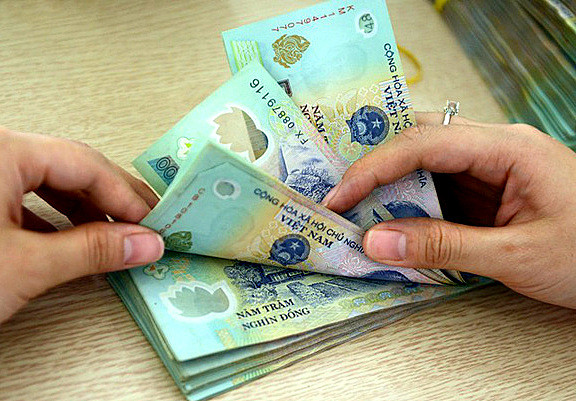Minimum wage next year, how much increase?
On the afternoon of July 9, 15 members of the National Wage Council attended the first meeting of 2018 to discuss the increase in regional minimum wages in 2019. Although representatives of workers and employers still had different opinions.
Salary is still only for calculating insurance and union
Although workers' salaries are currently only enough to cover their daily living expenses, when talking about increasing the minimum wage next year, the opinions of members of the National Wage Council on the sidelines of the meeting on the afternoon of July 9 still have many differences.
Mr. Mai Duc Chinh, Vice President of the Vietnam General Confederation of Labor - and Vice President of the National Wage Council, said: Inflation this year is about 4%, GDP growth has been over 7% so far, so workers must also enjoy that result. At the same time, the state sector also increased wages by nearly 7% from July 1, so the business sector must also increase accordingly. The labor representative proposed a wage increase next year of at least 8%.
 |
| Illustration photo. |
According to Mr. Chinh, Resolution 27 of the Central Committee sets the target that by 2020, the minimum wage must meet the minimum living needs of workers. “With the current salary, workers have a hard life, the average rent alone is 1 million VND per month, electricity and water costs an additional 50-60 thousand VND, not including food costs, the need to improve the quality of life…”, Mr. Chinh said.
On the part of employers, Mr. Hoang Quang Phong, Vice President of the Vietnam Chamber of Commerce and Industry (VCCI) - and Vice President of the National Wage Council, said: Before participating in the first meeting of the National Wage Council, VCCI had a working session with associations of domestic and foreign enterprises to gather opinions.
“The vast majority of business associations recommend that the minimum wage should not be adjusted next year, so that businesses can recover and reinvest to improve labor productivity... We will discuss with members of the National Wage Council to have a final opinion,” said Mr. Phong.
Regarding the proposal to increase wages by 8% by the labor representative, Mr. Phong said that the current minimum wage already meets over 90% of the minimum living needs, so the proposed level is too high, making it difficult for businesses to meet. According to Mr. Phong, if the minimum wage is to increase, it must take into account the room for businesses to reinvest, improve labor productivity, product quality, etc., thereby improving payments to workers.
The increase could be similar to 2018.
Mr. Pham Minh Huan, former Chairman of the National Wage Council, said that the minimum wage must still increase next year. With the current socio-economic indicators, Mr. Huan predicted a 5-6% increase in wages. This is an increase that will help increase the income of workers, within the capacity of businesses to bear.
Mr. Bui Sy Loi, Vice Chairman of the National Assembly's Committee on Social Affairs, said that the economic signal in 2018 was very positive, with the first half of the year's GDP being the highest in the past 8 years. Although wages must be considered based on other factors, such as consumer prices, labor productivity, etc., according to Mr. Loi, the minimum wage must still increase next year, because the current minimum wage only meets 90-92% of the minimum living needs.
According to Mr. Loi, the increase of 6-7% next year is reasonable, ensuring the harmony of interests between employers and employees. He said that the concept of minimum living needs is very broad, always changing and has many internal factors. Therefore, to have consensus among the parties on determining the minimum living standard, there needs to be an independent agency to calculate based on scientific basis. The announced results will be used as a basis for the National Wage Council to decide which will be more appropriate.
Deputy Minister of Labor, Invalids and Social Affairs Doan Mau Diep, Chairman of the National Wage Council, said that the parties in the council will have to reach a common voice on salary increases next year. “According to Resolution 27, the spirit of wage reform is that the State will not interfere in the wage policies of enterprises, but will promote the negotiation mechanism between employers and employees,” Mr. Diep said.
In 2018, the regional minimum wage increased by an average of 6.5%, from 180,000 - 230,000 VND/month. In which, the salary applied by region is: Region I: 3,980,000 VND/month; Region II: 3,530,000 VND/month; Region III: 3,090,000 VND/month; Region IV: 2,760,000 VND/month.
According to Mr. Doan Mau Diep, the technical department of the National Wage Council calculated and proposed a 5.3% increase compared to the 2018 salary level. However, this plan has not yet been agreed upon by council members.


